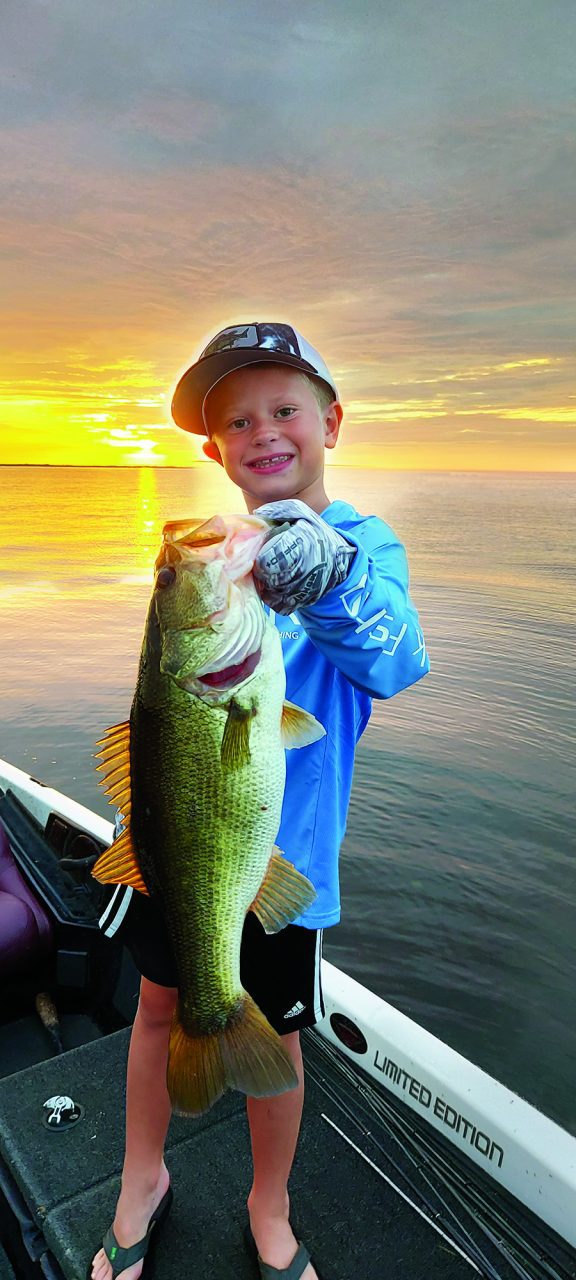By Capt. Nate Shellen, Contributing Writer

Lake Okeechobee has risen two feet during this rainy summer with several months of hurricane season left. Any questions as to whether there will be enough water this winter has already been answered. Fishermen will be able to fish areas of the lake that have not been navigable for a few months. Areas well back into the marsh are opening up and will continue to do so as the water continues to rise. During September, many bass will still be holding on the outside grass lines where they can chase and eat shad at their will. During the early morning hours, bass can be found actively chasing/schooling on large numbers of shad that are attempting to hide in and around the heavy Kissimmee grass lines that surround the lake. Many different lures will work in the grass, but a double willow leaf spinnerbait out catches most other baits two to one. The catch rates vary daily according to the amount of sunlight; some days 15 bass can be caught during that early morning bite and then other days 25 to 30 will fall prey to the spinnerbait and /or swim jig. Every day is different, but every day is a success with a shot at the trophy bass of a lifetime on each cast.
Once the early morning feeding frenzy is over and the fish move further into the grass, a slower more methodical approach is needed. Flipping or pitching creature style baits, such as an ugly otter, will draw all the bites an angler desire. Fishing the creature bait entails putting your bait into crevices and holes in any thick cover area you can see. Heavy braided line is required as is a very stout rod and reel that can wrench a fish out of their hiding place. It’s basically hand to hand combat and the bass win more battles than the anglers. Other techniques that have proved successful for us require 8 to 12-pound mono spooled on a spinning rod, armed with a fluke or a Senko. The very slow descent of these baits drives bass crazy at times. This technique is better performed when the wind is not blowing hard, simply because the wind can make feeling the bait on the light line nearly impossible. Many times, with these light offerings, a bass will simply pick the bait up and swim with it, so watching closely for line movement is key. A live wild shiner will entice bass to eat when nothing else will. Still the best bass bait you can use, a wild shiner, will catch bass of all sizes. A bass can inhale a shiner nearly half its body length. Small bass will amaze you sometimes at how aggressive they are toward shiners you may think are too big for them to eat.
Capt. Nate Shellen
Shellen Guide Service
Okeechobee Bass Fishing Guides/Charters
(863) 357-0892 • sjmike7@aol.com
OkeechobeeBassFishing.com
